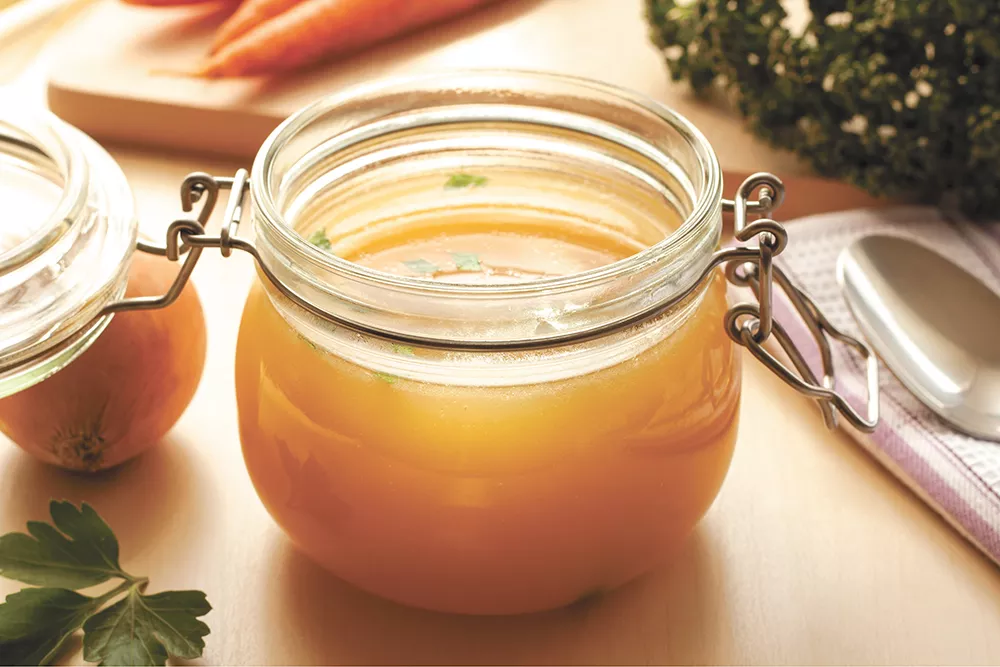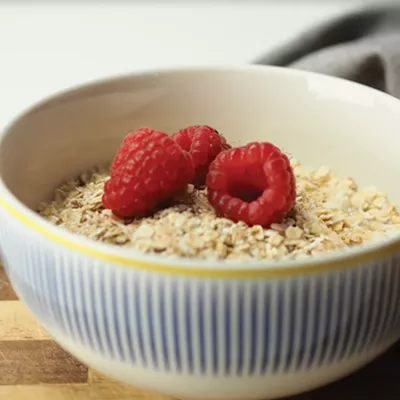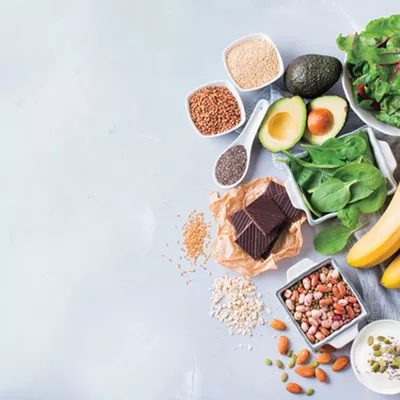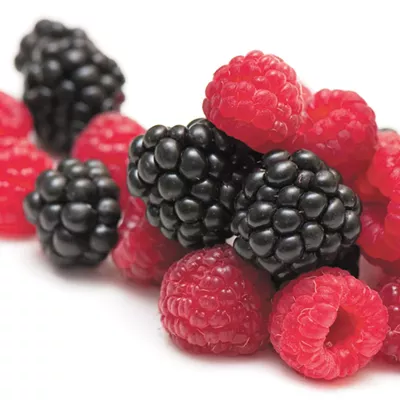Collagen — the most abundant protein in the body — is the glue that holds us together. This versatile protein supports your skin, coats your joints and gives strength to connective tissue. However, as we age, we begin to break down more collagen than our bodies can produce, leading to wrinkled skin and painful joints. Can consuming more collagen in our diets help to reverse this breakdown?
ATTRIBUTES
Supplementation with collagen may be able to offset some of our bodies' natural breakdown processes. Either through manufacturing or digestion, collagen is broken down into peptides — small strings of amino acids that once made up the full-sized collagen protein. These small peptides can be absorbed and used by the body. Collagen peptides are hypothesized not only to accumulate at collagen-concentrated areas like joints and skin, but also stimulate our cells to produce more of their own collagen. Studies suggest that collagen supplementation can alleviate symptoms of joint pain, arthritis and improve skin hydration.
SUPER POWERS
Perhaps the first site of action for ingested collagen is in the intestine. Collagen peptides interact with a region of the intestine known as Peyer's Patches, an area with a high amount of immune cells related to anti-inflammation. Through this mechanism, collagen has been associated with relieving inflammatory symptoms of autoimmune diseases, particularly rheumatoid arthritis.
In a study done in healthy patients with no history of arthritis, daily supplementation with undenatured collagen modestly improved knee range of motion. This study also found that the maximum beneficial effects were achieved and persisted after three months. Another study found that osteoarthritis symptoms were also relieved in a similar time frame.
WEAKNESSES
Since many studies on the beneficial effects of collagen supplementation were done in combination with other compounds (such as chondroitin or other vitamins and minerals), it's difficult to pinpoint the exact role of collagen in many study results.
Additionally, collagen is an animal protein and is not a vegan-friendly supplement. Supplemental collagen type II (also called CII collagen) is often sourced from chicken sternum, shark or pig.
HOW TO USE IT
There are a few ways to add collagen to your diet. Consuming bone broths or organ meats is a whole-food way to add collagen to your daily routine. Alternatively, collagen supplements are widely available online and at health food stores.
There are many different types of collagen, however, most supplements contain only collagen type II (also known as CII). Due to this, most studies have focused solely on CII, rather than other collagen types.
When deciding on a collagen supplement, it's important to understand the difference between hydrolyzed and undenatured collagen. Hydrolyzed collagen is broken down during manufacturing to contain smaller peptides but is often taken at a high dosage, between 8-12 grams. However, when taking collagen to benefit arthritic conditions, it may be beneficial to take the undenatured form. Undenatured collagen is the full-length collagen protein as it exists in nature. The suggested dose of undenatured collagen in studies is much lower, at just 40 milligrams.
Very few toxic effects have been associated with high doses of collagen, but controlled long-term toxicity studies in humans have yet to be performed.
Stacey Aggarwal received a Ph.D. in Pharmacology from the University of Washington, where she studied mitochondrial function in breast cancer. Now she writes about biology, health, and nutrition while running a lavender farm in North Idaho.
























